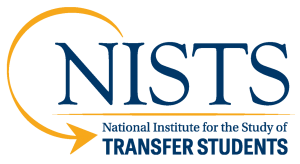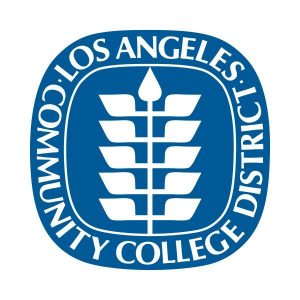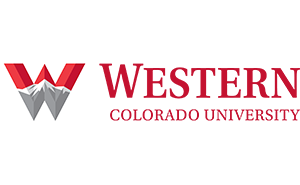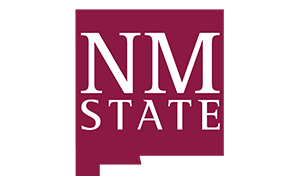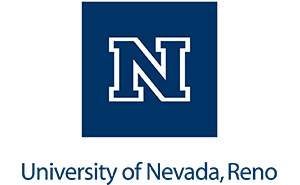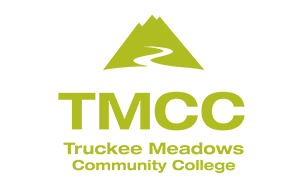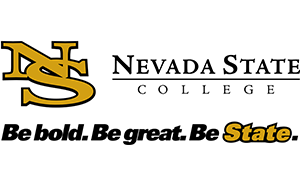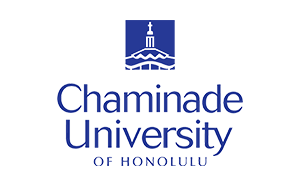BIO: Janet L. Marling, Ph.D. has been affiliated with NISTS since its establishment in 2002 and was named executive director in 2011. In this role and through her extensive speaking, training, and consulting activities, Dr. Marling works with individuals, higher education institutions and associations, state agencies, foundations, and legislative bodies to improve transfer policy, practice, and research. She edited the New Directions for Higher Education volume titled, Collegiate Transfer: Navigating the New Normal, published by Jossey-Bass, and has been involved as a project director and/or co-principal investigator for multiple research grants focusing on transfer student success. Dr. Marling holds a Ph.D. in higher education administration from the University of North Texas, an M.S. in counseling psychology from the University of Southern Mississippi, and a B.S. in psychology from Texas Christian University.
Anna Galas: Let’s start off with a little bit about the organization, the National Institute for the Study of Transfer Students (NISTS), itself, what it has focused on most as an organization the last couple of years and what are the current priorities?
Janet Marling: Bonita Jacobs founded NISTS in 2000 at the University of Texas. I served as the Director of New Student and Mentoring Programs at that time, and transfer students comprised 54 percent of our undergraduate student population. That equated to about 10,000 new transfer students each year, and we weren’t sure how best to serve them. Noting a lack of research and practice literature and professional development opportunities, we decided to convene a national gathering of transfer professionals on our campus that was very well received. Eighteen conferences later, we’ve expanded our work beyond the conference to include original research, commissioned research, professional development content for our website, professional and student recognition programs, and created an academic certificate on transfer leadership and practice.
Today we envision a world where every higher education professional and institution provides a holistic and inclusive student experience for all transfer students. We manifest this through professional development that empowers practitioners, faculty, and administrators to challenge the status quo and be transfer champions. We define champions in three ways: 1) agents provide individual support that builds students’ confidence and helps them navigate their transition; 2) connectors use their influence to connect students with specific individuals and resources and further the students’ academic journey; and 3) advocates more broadly address transfer, seeking to create institutional culture, policy, and practice changes to support these students.
Our core values center on education, research, and advocacy, and all of our programs stem from this perspective. We examine the pressing transfer problems we are trying to solve and determine how we can provide our stakeholders with the tools they need to help transfer students and create campus climates where transfer students are successful.
AG: That leads me to the next question. As an organization, what do you feel are the pressing problems today, after living through COVID the last six months and moving forward?
JM: The transfer process continues to be entirely too difficult to navigate for many students. It’s critical that 2- and 4-year institutions broadly examine and streamline their transfer policies and procedures. Transfer students struggle to get access to accurate and timely information. If they are contemplating transferring, they need information from both their sending and receiving institutions, and too often, it’s just not accessible. College websites fail to address the intricacies of transfer, leaving students with incomplete information and unclear next steps.
From the standpoint of COVID-19, we are learning as we go. Whether or not we’re going to see increases in student mobility remains to be seen. And does that mobility manifest itself as students physically moving between campuses, or is it more of an exchange of credit? It’s plausible that students can earn credit from multiple institutions without ever having left their residences. Yet, we have to figure out a way for those credits to mean something and contribute to students’ academic momentum
What keeps me up at night in this age of COVID and post-COVID is wondering how many capable transfer students, particularly low-income students and students of color, have stopped out of higher education. For those able to continue, I worry they may not have the access and energy to engage in the robust academic planning required to maintain their momentum. Life’s fundamentals understandably drive students’ current decision-making: Can I feel safe in my environment? Can I afford college right now? What is the most convenient college option? Considerations related to the consequences of their decisions, such as whether or not credits will transfer, may not be top of mind. Institutions need to understand this challenge and proactively act on behalf of students by removing unnecessary barriers and revising prohibitive policies and practices.
That leads us to thoughts on policy. I get asked a lot: what transfer policies are changing because of COVID-19? Honestly, institutions are altering practices right now, but it may be a while longer before we see sustainable policy changes. Institutions are suspending rules around pass/fail and credit acceptance, due dates for application materials, and official vs. unofficial transcripts. It will be interesting to see if there’s a resulting sustained effect of any of these changes.
I am concerned institutions will prioritize enrolling transfer students without having an intentional plan for ensuring that they transition well and persist, a surefire recipe for students amassing extra credits and experiencing increased costs and time to degree. We receive frequent inquiries about best practices for transfer recruitment. A valid request, but I have a hard time educating around recruitment without talking about transfer student persistence and graduation.
It’s essential to recognize that the situation prompted by COVID-19 is not going to be relegated only to the fall semester, and institutions must continue to admit transfer students with the same level of flexibility as they do for first-time-in-college students. We see institutions struggle with transcript evaluations because of delayed transcript exchange between institutions.
It goes back to three areas that transfer students are most concerned about: credits, costs, critical support. Interstate Passport hits the issue of credit transfer. Our students want to know what credits will be accepted and how they’ll be applied to their degree program. Especially in this age of COVID-19, we have to avoid lost time and money associated with excess credits. That is critical. Students are very concerned about costs, both the actual and the hidden costs of attendance. There is no parity for transfers when it comes to financial aid and scholarship availability, which is certainly a barrier for our students. So having accurate information about costs and financial assistance is imperative.
Another issue is critical support: advising and support services. Students need to be assured, in word and deed, that they can maintain the academic momentum they carry from their previous institution, have access to mental health and wellness resources, and develop a sense of belonging. Especially now, as this health crisis has challenged everyone, there is no room for error. There never was – but there sincerely isn’t anymore.
AG: Is most of your work with institutions or are you having these conversations with other organizations as well?
JM: We’re doing a little bit of both. We are having conversations with statewide transfer organizations, statewide affinity groups and other national organizations just to get a pulse on what’s happening. The data aren’t there yet to know what transfer patterns are going to look like or the pandemic’s impact. Going into the fall term, we did not have adequate data regarding transfer students’ intentions and concerns. We can say that the situation is exacerbating the challenges that transfers have always encountered when moving between institutions.
AG: Do you feel that this is an opportunity for institutions to improve? COVID is causing folks to prioritize. Do you feel like transfer is rising to the top as one of those issues that institutions have always talked about wanting to improve, and now they’re focusing on that?
JM: That’s such a great question because I believe there is always opportunity in the most challenging times. We have examples of institutions proving that they can have different and better practices on behalf of transfer students because of COVID. For example, many institutions are now providing online services, whether it’s advising or admission appointments, etc., at different hours of the day to meet students where they are. We’ve had reports of institutions being pleasantly surprised by this forced change and optimistic about sustaining the practice. Right now, institutions are still in survival mode as things continue to change rapidly. My hope is that when the time is right, we will take advantage of this opportunity to examine what it means to serve transfer students properly.
More administrators are viewing transfer students as an antidote to declining enrollment. Again, I’m concerned that they’re focused on getting those students into the institution but not yet having conversations about transition, persistence, and graduation. I truly hope the pandemic’s outcome is an acknowledgment that we need to do things differently on behalf of our transfer students, rather than a focus on getting back to what we perceive to be normal. Somebody asked me the other day what it would look like to successfully navigate COVID-19. And my response was: a resistance to return to normalcy. Because normalcy was not particularly working for our transfer population.
AG: As you know, Interstate Passport issued a call to action in July for higher education to explore how to better serve transfer students. Interstate Passport has not solved all of the problems or challenges with transfer, but it is a tool that ensures a certain aspect of transfer for students.
JM: Yes. Interstate Passport addresses the momentum issue that I mentioned earlier. Passport students have a clear sense of what will transfer between Institutions and especially across state lines, which allows them to pursue an academic pathway with an enhanced level of competence. When used in conjunction with intentional educational exploration and program planning at both the receiving and the sending institutions, Passport is an incredible asset to transfer student success and college completion. That sense of security for students is essential. If they encounter a pause in their education, they still have credentials to support what they’ve learned and the potential to apply those credits at a later time.
AG: The National Transfer Student Week – how did that come about? Was last year the first year?
JM: We are now in our third year of National Transfer Student Week. Two groups of transfer professionals – the New York State Transfer Association and the New England Transfer Association – were attending a joint meeting and brainstorming about how everybody gets their special week. Why don’t transfer students have a special week? So they contacted us and asked if this is an idea that people could coalesce around. We thought it was fantastic and we offered to host it.
National Transfer Student week celebrates transfer students and the professionals who support them on their journey. We want institutions to build empathy for transfer students, challenge assumptions, and, most importantly, celebrate those thriving through transfer. During NTSW, we also present our Transfer Student Ambassadors, current or recent transfer students, selected through a national competition. It’s an honor to cast the national spotlight on these exceptional students.
This year’s National Transfer Student Week is the 19th through the 23rd of October. To make it easy to participate, we provide media and programming toolkits on our website. During the week, we highlight how campuses are celebrating and post to social media. We are also super excited to be launching our new Transfer Website Strategy Guide during NTSW. The web site is up already: https://www.nists.org/national-transfer-student-week

